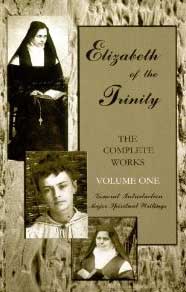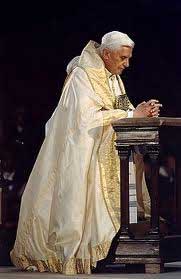[powerpress]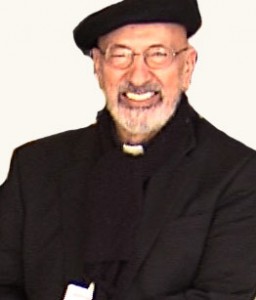 Msgr. Esseff teaches the importance of the Liturgy of Hours. He breaks open each portion of Morning Prayer. The Hymn, the psalm, the canticle, again the psalm … we sing praise to God with this section of Morning Prayer. Then God speaks to us in the reading. Then we respond to
Msgr. Esseff teaches the importance of the Liturgy of Hours. He breaks open each portion of Morning Prayer. The Hymn, the psalm, the canticle, again the psalm … we sing praise to God with this section of Morning Prayer. Then God speaks to us in the reading. Then we respond to  with the a short psalm. Then he helps us to appreciate the power of the Benedictus. That is followed by the intentions of the Church. Concluding with the great Our Father. We then bless the Lord and give Him thanks. Jesus unites the world in our prayer of praise to the Father when we enter into the Divine Office.
with the a short psalm. Then he helps us to appreciate the power of the Benedictus. That is followed by the intentions of the Church. Concluding with the great Our Father. We then bless the Lord and give Him thanks. Jesus unites the world in our prayer of praise to the Father when we enter into the Divine Office.
Be sure to visit Msgr. Esseff’s website “Building A Kingdom of Love”
Pray the Liturgy of Hours
Tags: catholic, catholic podcast, catholic prayer, cathollc spirituality, Esseff, John Esseff, morning prayer
This entry was posted on Thursday, February 16th, 2012 at 6:30 pm
You can follow any responses to this entry through the RSS 2.0 feed.
Episode 5 The Daily Prayer of Discernment: The Ignatian Wisdom of the Examen Prayer with Fr. Timothy Gallagher.
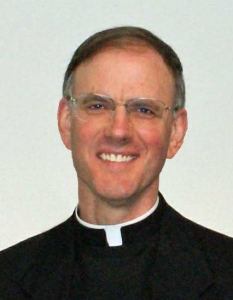 Fr. Gallagher continues to discuss the third step – REVIEW – which is where the “The Discernment of Spirits” intersects with “The Examen”. Â Then we approach the fourth step – FORGIVENESS – which is what all the actions in the prayer are leading to.
Fr. Gallagher continues to discuss the third step – REVIEW – which is where the “The Discernment of Spirits” intersects with “The Examen”. Â Then we approach the fourth step – FORGIVENESS – which is what all the actions in the prayer are leading to.
[powerpress]
As outlined from the Spiritual Exercises of St. Ignatius of Loyola
(translated from the autograph by Fr. E. Mullan, S.J. Â 1909Â in the public domain)
METHOD FOR MAKING THE GENERAL EXAMEN
It contains in it five Points.First Point. The first Point is to give thanks to God our Lord for the benefits received.
Second Point. The second, to ask grace to know our sins and cast them out.
Third Point. The third, to ask account of our soul from the hour that we rose up to the present Examen, hour by hour, or period by period: and first as to thoughts, and then as to words, and then as to acts, in the same order as was mentioned in the Particular Examen.
Fourth Point. The fourth, to ask pardon of God our Lord for the faults.
Fifth Point. The fifth, to purpose amendment with His grace.OUR FATHER.
Father Timothy M. Gallagher, O.M.V., was ordained in 1979 as a member of the Oblates of the Virgin Mary, a religious community dedicated to retreats and spiritual formation according to the Spiritual Exercises of St. Ignatius. Â Fr. Gallagher is featured on the EWTN series “Living the Discerning Life: Â The Spiritual Teachings of St. Ignatius of Loyola”. Â For more information on books and audio available for purchase from Fr. Timothy Gallagher check out his website: www.frtimothygallagher.org
For the other episodes in this series check out
Fr. Timothy Gallagher’s “Discerning Hearts†page
Tags: catholic, catholic podcast, catholic prayer, cathollc spirituality, discernment of spirits, Timothy Gallagher
This entry was posted on Thursday, February 16th, 2012 at 7:07 am
You can follow any responses to this entry through the RSS 2.0 feed.
[powerpress]Msgr. Esseff offers his second lesson in “Teach Us How To Pray”. 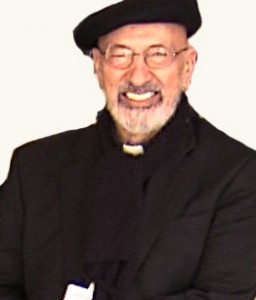  He speaks of the importance of Morning and Evening prayers in our lives.  The Holy Spirit inspires us to pray and the Church teaches prayer through the Liturgy of the Hours.
 He speaks of the importance of Morning and Evening prayers in our lives.  The Holy Spirit inspires us to pray and the Church teaches prayer through the Liturgy of the Hours.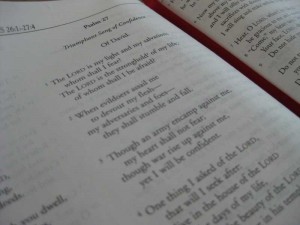  Msgr. Esseff goes on to teach on the Psalms.  Those who pray the psalms offer powerful praise to the Father. Who actually praises?  In the deepest level of our heart, it’s actually Jesus who praises the Father in us when we pray the Psalms and the Father loves us in return.  What is essential is that we listen to what God says to us in prayer…Listen.
 Msgr. Esseff goes on to teach on the Psalms.  Those who pray the psalms offer powerful praise to the Father. Who actually praises?  In the deepest level of our heart, it’s actually Jesus who praises the Father in us when we pray the Psalms and the Father loves us in return.  What is essential is that we listen to what God says to us in prayer…Listen.
Pray the Liturgy of Hours
Tags: catholic, catholic podcast, catholic prayer, cathollc spirituality
This entry was posted on Wednesday, February 15th, 2012 at 7:26 am
You can follow any responses to this entry through the RSS 2.0 feed.
Episode 6 Beginning to Pray: Â “Heaven in Faith” Â Day 3 Prayer 2 – “You have died and your life is hidden with Christ in God”
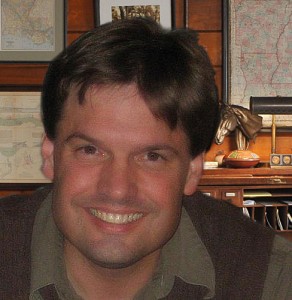
[powerpress]
Dr. Anthony Lilles is a Catholic husband and father of three teaching Spiritual Theology at St. John Vianney Theological Seminary. He  teaches spiritual theology and spiritual direction to transitional deacons, and the spiritual classics to the men who enter the Spirituality Year, a year of prayer in preparation for seminary formation.  He is the author of the “Beginning to Pray”  catholic blog spot.
From “Heaven in Faith: Day 3 Prayer 2” found in The Complete Works vol 1:
11. “You have died and your life is hidden with Christ in God” Â St. Paul comes to bring us a light to guide us on the pathway of the abyss. Â “You have died”! Â What does that mean but that the soul that aspires to live close to God “in the invincible fortress of holy recollection” must be “set apart, stripped, and withdrawn from all things” (in spirit). Â This soul “finds within itself a simple ascending movement of love to God, whatever creatures may do; it is invincible to things which” pass away, “for it transcends them, seeking God alone.”
For other episodes in the series visit the Discerning Hearts page for Dr. Anthony Lilles
We would like to offer heartfelt thanks to
Miriam Gutierrez for providing for us “the voice” of Blessed Elizabeth for this series
Tags: Anthony Lilles, blessed elizabeth of the trinity, carmelite, catholic, catholic podcast, catholic prayer, cathollc spirituality, heaven in faith, Spiritual Theology, St. John Vianney Theological Seminary
This entry was posted on Wednesday, February 15th, 2012 at 1:30 am
You can follow any responses to this entry through the RSS 2.0 feed.
Episode 5- The School of Prayer: Reflections on the teachings of Pope Benedict XVI –  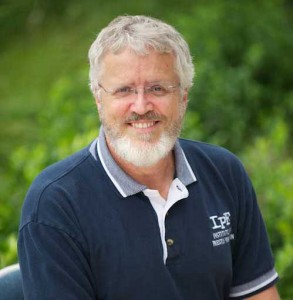 What is the authentic understanding of “intercession” in the context of prayer.  Moses speaks to God as friend.  The invisibility of God  puts deep questions in our hearts.  Unless we have the intimacy of relationship with God in our hearts, our fear will overwhelm our faith.  We also lose patience when waiting for God.  “Waiting” is a dangerous period for human beings; it is literally suffering for us.  The virtue of patience is the remedy.  “Waiting” causes us to run to other diversions…it happens in worship.  “Where are you”  “Are you real?” “Can I believe what is in the Word?” “Please help me.”  If we go deep into our hearts, the content of our waiting becomes the occasion for our intimacy.  But if we just feel the pain of waiting, we will go looking for lost gods.  It comes down to trust.  The role of our memory is so important. [powerpress] Deacon James Keating, PhD, the director of Theological Formation for the Institute for Priestly Formation, located at Creighton University, in Omaha. From  Pope Benedict’s 5 audience on prayer:
What is the authentic understanding of “intercession” in the context of prayer.  Moses speaks to God as friend.  The invisibility of God  puts deep questions in our hearts.  Unless we have the intimacy of relationship with God in our hearts, our fear will overwhelm our faith.  We also lose patience when waiting for God.  “Waiting” is a dangerous period for human beings; it is literally suffering for us.  The virtue of patience is the remedy.  “Waiting” causes us to run to other diversions…it happens in worship.  “Where are you”  “Are you real?” “Can I believe what is in the Word?” “Please help me.”  If we go deep into our hearts, the content of our waiting becomes the occasion for our intimacy.  But if we just feel the pain of waiting, we will go looking for lost gods.  It comes down to trust.  The role of our memory is so important. [powerpress] Deacon James Keating, PhD, the director of Theological Formation for the Institute for Priestly Formation, located at Creighton University, in Omaha. From  Pope Benedict’s 5 audience on prayer:
“Tired of following a path with a God who is invisible now that Moses the mediator has also gone, the people demand a tangible, palpable presence of the Lord and find an accessible god, within the reach of human beings, in Aaron’s molten metal calf. This is a constant temptation on the path of faith: avoiding the divine mystery by building a comprehensible god that corresponds to our own preconceptions and plansâ€.
 For more information on the “Institute of Priestly Formation†and for other material available by Deacon Keating, just click here
For more information on the “Institute of Priestly Formation†and for other material available by Deacon Keating, just click here 
Don’t forget to pickup a copy of “Communion with Christ†, it is one of the best audio sets on prayer…ever!
Check out Deacon Keating’s “Discerning Heart†page
Tags: catholic, catholic podcast, catholic prayer, cathollc spirituality, creighton university, institute for priestly formation, james keating, pope benedict, pope benedict xvi
This entry was posted on Monday, February 13th, 2012 at 10:58 am
You can follow any responses to this entry through the RSS 2.0 feed.
To say that Sigrid Undset is compelling would be an understatement. Catholic convert, 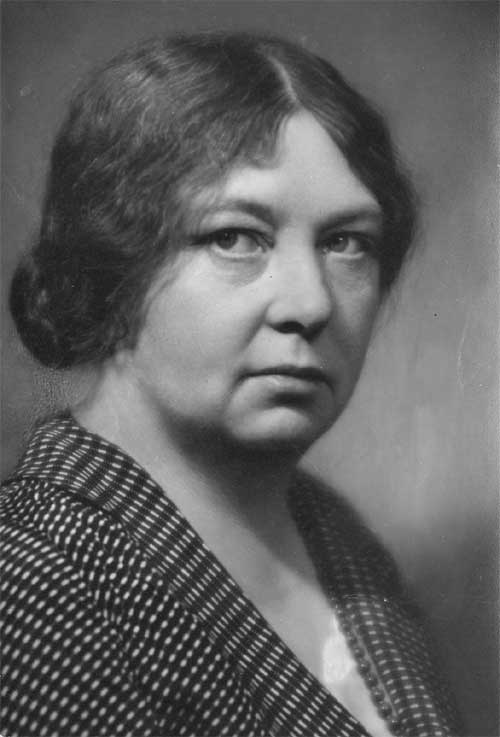 Nobel Prize winning Norwegian novelist , her works invoke the poignancy of the fall and the hope that is found in the act of redemptive suffering. “Ida Elisabeth” is a tremendous work. Great literature helps us practice the virtues. We may never encounter the situations the characters do, but watching how they navigate through the emotions and morals of the moments, help us to exercise our own virtues and responses to the underlying sin that propels the characters forward…and helps us to avoid recognize in some way the traps laid before us.
Nobel Prize winning Norwegian novelist , her works invoke the poignancy of the fall and the hope that is found in the act of redemptive suffering. “Ida Elisabeth” is a tremendous work. Great literature helps us practice the virtues. We may never encounter the situations the characters do, but watching how they navigate through the emotions and morals of the moments, help us to exercise our own virtues and responses to the underlying sin that propels the characters forward…and helps us to avoid recognize in some way the traps laid before us.
[powerpress]
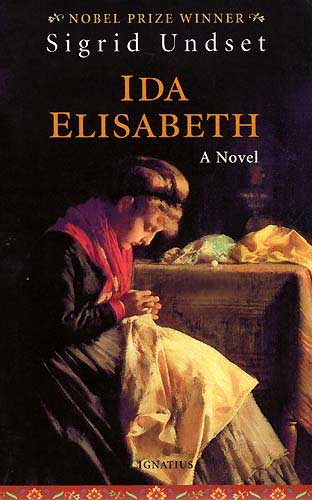 Vivian Dudro joins us once again to discuss Sigrid Undset, her life and her times, and some other works of this important author.
Vivian Dudro joins us once again to discuss Sigrid Undset, her life and her times, and some other works of this important author.
You can find the book here
“Undset is a realist in the truest sense of the word. She sees the real world in which people face the bitter consequences of selfish choices and in which suffering is unavoidable and yet potentially redemptive. In her acclaimed historical fiction, Undset shows us that the acceptance of suffering is the beginning of wisdom and also, paradoxically, the path to peace and lasting joy.”
- Joseph Pearce, Author, The Quest for Shakespeare
Tags: catholic, catholic podcast, catholic prayer, cathollc spirituality, ignatius press, joseph pearce, Sigrid Undset, suffering, works
This entry was posted on Monday, February 13th, 2012 at 10:38 am
You can follow any responses to this entry through the RSS 2.0 feed.
[powerpress]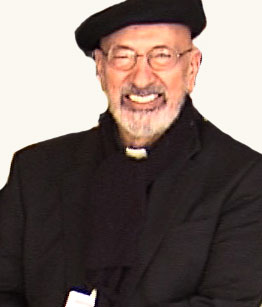 Prayer is assumed as something we know how to do, but do we? The Church has been constantly teaching her children throughout the ages. The Mass, of course, is our central act of prayer. Â But to truly deepen our prayer, even our worship in the Mass, we must appreciate who God is. God is a Trinity, He revealed Himself to us. He is Three Persons in One God. We experience and express their relationship when we pray “Glory be to the Father, Glory be to the Son,
Prayer is assumed as something we know how to do, but do we? The Church has been constantly teaching her children throughout the ages. The Mass, of course, is our central act of prayer. Â But to truly deepen our prayer, even our worship in the Mass, we must appreciate who God is. God is a Trinity, He revealed Himself to us. He is Three Persons in One God. We experience and express their relationship when we pray “Glory be to the Father, Glory be to the Son, 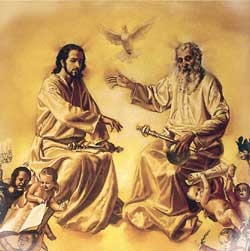 Glory be the Holy Spirit, as it was in the beginning, is now and ever shall be world without end”. When we pray “Glory be to the Father”, He really hears us…He is present, He is truly with you. What does that mean when we pray? It is a relationship. The same is true in relation to the Son and the Holy Spirit. Msgr. Esseff, in this first lesson on prayer, breaks this open in a very deep and important way…the importance of Trinity and presence. Msgr. Esseff also begins an introduction to the importance of the Liturgy of the Hours and the Psalms.
Glory be the Holy Spirit, as it was in the beginning, is now and ever shall be world without end”. When we pray “Glory be to the Father”, He really hears us…He is present, He is truly with you. What does that mean when we pray? It is a relationship. The same is true in relation to the Son and the Holy Spirit. Msgr. Esseff, in this first lesson on prayer, breaks this open in a very deep and important way…the importance of Trinity and presence. Msgr. Esseff also begins an introduction to the importance of the Liturgy of the Hours and the Psalms.
Be sure to visit Msgr. Esseff’s website: Â “Building A Kingdom of Love“
Tags: catholic, catholic podcast, catholic prayer, cathollc spirituality, John Esseff, Trinity
This entry was posted on Sunday, February 12th, 2012 at 8:40 pm
You can follow any responses to this entry through the RSS 2.0 feed.
It’s been a fantastic journey to enter into the life Dietrich Bonhoeffer through the writing of Eric Metaxas. “Bonhoeffer: Pastor, Martyr, Prophet, Spy” 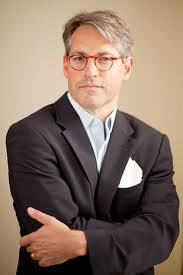 is a deeply moving telling of the life of the German Lutheran theologian and pastor who would face the leviathan of evil known as the Third Reich in Nazi Germany. In reading this work, I was reminded of the young man several years ago in Tiananmenin Square who stood before the tank during the protests. It doesn’t surprise me that Archbishop Chaput would highly recommended this book as well as the “witness” of this Christian man who was a voice for those who could not speak. He did what St. Paul called us all to do…to stand. Eric Metaxas does a great job bringing this biography to life and giving us the greater context
is a deeply moving telling of the life of the German Lutheran theologian and pastor who would face the leviathan of evil known as the Third Reich in Nazi Germany. In reading this work, I was reminded of the young man several years ago in Tiananmenin Square who stood before the tank during the protests. It doesn’t surprise me that Archbishop Chaput would highly recommended this book as well as the “witness” of this Christian man who was a voice for those who could not speak. He did what St. Paul called us all to do…to stand. Eric Metaxas does a great job bringing this biography to life and giving us the greater context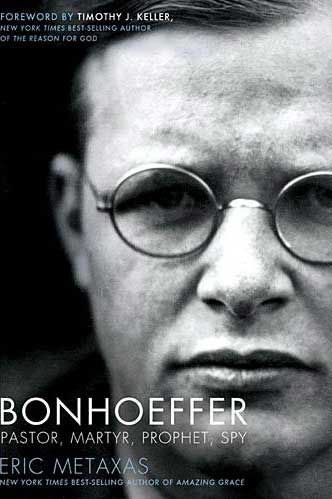 of his witness.
of his witness.
[powerpress]
Visit www.ericmetaxas.com to learn more
Here is another interview that Bruce and I had  wi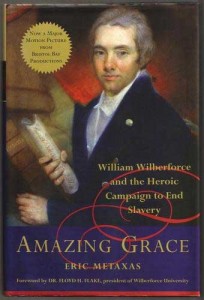 th Eric about William Wilberforce in his book “Amazing Grace” [powerpress url=”http://www.old.discerninghearts.com/Morning%20Show/Eric%20Metaxas%20Amazing%20Grace.mp3″]Download(right click  & choose “Save Link As”)
th Eric about William Wilberforce in his book “Amazing Grace” [powerpress url=”http://www.old.discerninghearts.com/Morning%20Show/Eric%20Metaxas%20Amazing%20Grace.mp3″]Download(right click  & choose “Save Link As”)
Tags: archbishop chaput, catholic, catholic podcast, catholic prayer, cathollc spirituality, dietrich bonhoeffer, eric metaxas, lutheran theologian, martyr, nazi germany, third reich, william wilberforce
This entry was posted on Friday, February 10th, 2012 at 12:51 am
You can follow any responses to this entry through the RSS 2.0 feed.
Episode 4 The Daily Prayer of Discernment: The Ignatian Wisdom of the Examen Prayer with Fr. Timothy Gallagher.
  The third step – REVIEW – this is point where the “Discernment of Spirits – the 14 Rules” and the Examen intersect.  With  God, we review the day. We look for the stirrings in our hearts and the thoughts that God has given us this day. We also look for those that have not been of God. IWe review our choices in response to both, and throughout the day in general.
 The third step – REVIEW – this is point where the “Discernment of Spirits – the 14 Rules” and the Examen intersect.  With  God, we review the day. We look for the stirrings in our hearts and the thoughts that God has given us this day. We also look for those that have not been of God. IWe review our choices in response to both, and throughout the day in general.
[powerpress]
As outlined from the Spiritual Exercises of St. Ignatius of Loyola
(translated from the autograph by Fr. E. Mullan, S.J. Â 1909Â in the public domain)
METHOD FOR MAKING THE GENERAL EXAMEN
It contains in it five Points.First Point. The first Point is to give thanks to God our Lord for the benefits received.
Second Point. The second, to ask grace to know our sins and cast them out.
Third Point. The third, to ask account of our soul from the hour that we rose up to the present Examen, hour by hour, or period by period: and first as to thoughts, and then as to words, and then as to acts, in the same order as was mentioned in the Particular Examen.
Fourth Point. The fourth, to ask pardon of God our Lord for the faults.
Fifth Point. The fifth, to purpose amendment with His grace.OUR FATHER.
Father Timothy M. Gallagher, O.M.V., was ordained in 1979 as a member of the Oblates of the Virgin Mary, a religious community dedicated to retreats and spiritual formation according to the Spiritual Exercises of St. Ignatius. Â Fr. Gallagher is featured on the EWTN series “Living the Discerning Life: Â The Spiritual Teachings of St. Ignatius of Loyola”. Â For more information on books and audio available for purchase from Fr. Timothy Gallagher check out his website: www.frtimothygallagher.org
For the other episodes in this series check out
Fr. Timothy Gallagher’s “Discerning Hearts†page
Tags: catholic, catholic podcast, catholic prayer, cathollc spirituality, discernment of spirits, Timothy Gallagher
This entry was posted on Thursday, February 9th, 2012 at 12:49 am
You can follow any responses to this entry through the RSS 2.0 feed.
The Teaching Authority of the Church
[powerpress]
Many scoff at the Church’s precepts and rules, and can’t fathom how our relationship with the Church could affect our relationship with Christ.
Let us remember that the high priests of Israel, due to their office, could inquire of the Lord.  And recall Caiaphas’ prophecy about Jesus’ 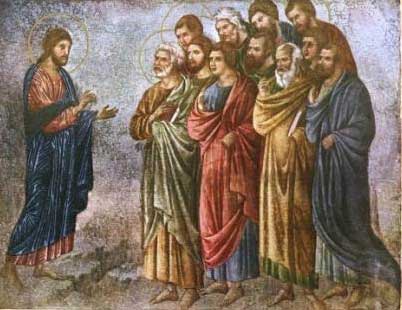 mission, which John 11 states was not said of his own accord, but in virtue of his being high priest that year.1
mission, which John 11 states was not said of his own accord, but in virtue of his being high priest that year.1
Our Lord upheld the legitimacy of the teaching office when He said in Matthew 23, “the scribes and the Pharisees sit on Moses’ seat, so practice and observe whatever they tell you,â€Â 2 though He quickly warned not to follow their bad example.
Jesus commissioned His apostles to be the leaders of His Church.  He told them, “As the Father sent me, so I send you,â€3 and “He who hears you hears me and he who rejects you rejects me.â€4
The popes and bishops of the Catholic Church succeed the apostles in their teaching office,5Â and it is they who, over the centuries, have passed on the Faith to us through creeds, Church councils, even Scripture itself.
We are called to accept the Church’s teachings with joy,6 knowing that the Church is a good mother who desires our eternal happiness—and, after all, who could reject his own mother?
1Â -Â Â Jn. 11:50
2Â -Â Â Mt. 23:2
3Â -Â Â Jn. 20:21
4Â -Â Â Lk. 10:16
5 -  See The Catechism of the Catholic Church 77, 861-2.
6 -  cf. Vatican II, Lumen Gentium 25
Tags: catholic, catholic church, catholic podcast, catholic prayer, cathollc spirituality, Church The Teaching Authority, teaching authority
This entry was posted on Wednesday, February 8th, 2012 at 7:41 am
You can follow any responses to this entry through the RSS 2.0 feed.
Special Episode- Regnum Novum: Bringing forth the New Evangelization through Catholic Social Teaching with Omar Guiterrez – The recent decision by the Department of Health and Human Services and its implications on Catholic Social Teaching. Â How is the Catholic to understand this?
– The recent decision by the Department of Health and Human Services and its implications on Catholic Social Teaching. Â How is the Catholic to understand this?
[powerpress]
We encourage you to visit “Regnum Novum – A New Kingdom: A Revolution” Omar Guiterrez’s blog site
 From Omar’s blog post entitled “A Primer On the HHS Rule, What You Need to Know”
From Omar’s blog post entitled “A Primer On the HHS Rule, What You Need to Know”
What the Obama Administrations Health and Human Services Department (HHS) has done is an attack, which is why Catholics need to be well-informed about what is going on so that they can tell their neighbors about it. So, here are the facts….click here.
Also visit Omar’s “Discerning Hearts” page Catholic Social Teaching 101
Tags: catholic, catholic podcast, catholic prayer, catholic social teaching, cathollc spirituality, Omar Guiterrez
This entry was posted on Tuesday, February 7th, 2012 at 8:56 am
You can follow any responses to this entry through the RSS 2.0 feed.
[powerpress = “Vatican_Radio”]
Another program from Vatican Radio and the insightful Veronica Scarisbrick:
Charles Dickens ‘s grave lies in Westminster Abbey , in Poet’s Corner.
Here two centuries after his birth on the 7th February 1812 he was remembered in a special way .
But above all this great English 19th century novelist has not gone out of print in people’s hearts and minds .
Not perhaps for the prayers he wrote , some of which focused around supplications on behalf of the poor, the sick, the destitute but for the larger than life characters he invented, among them many children from hungry orphan Oliver Twist to lonely little Nell. His hallmark humanity and compassion sometimes even crossed paths with our parables , for example that of the ‘Prodigal Son’ which he once referred to as the “most beautiful story ever told”.
But while eighty years ago G.K. Chesterton another English novelist proclaimed Dickens as ‘almost Catholic ‘and others still claimed him as ‘almost Marxist’ , what’s certain is that his 200th birthday is something you cannot ‘bah humbug’ .
So why don’t we remember him here at Vatican Radio with a little bit of humour by bringing youan extract from a series of imaginary letters John Paul I wrote before becoming Pope, the ‘Illustrious through the Ages’ , the ‘Illustrissimi’. Among them one to Charles Dickens: ‘…Your books pleased me immensely because they are pervaded with a sense of love for the poor. Against them stand the oppressors , whom you disgrace with your pen dipped in the genius of anger and irony …We are in one boat full of people …If we don’t want to encounter serious turmoil , the rule is this : all for one and one for all..The whole world is a poorhouse and has such need of God.â€.
A programme presented and produced by Veronica Scarisbrick.
Tags: catholic, catholic podcast, catholic prayer, cathollc spirituality, charles dickens
This entry was posted on Tuesday, February 7th, 2012 at 8:40 am
You can follow any responses to this entry through the RSS 2.0 feed.
“The Song at the Scaffold” by Gertrude von le Forte’s is one of the best novella’s…ever!  Vivian Dudro, writer and editor at Igantius Press, 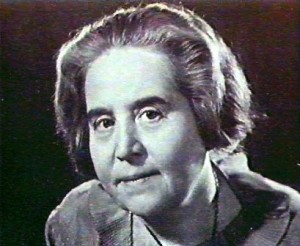 engages in a wonderful conversation about the work of German author Gertrude von le Forte who was a writer of novels, poems, and essays.  A convert  to Catholicism in 1926, most of  von le Forte work came after her conversion. In 1952 she won the Gottfried-Keller Prize, an esteemed Swiss literary award.
engages in a wonderful conversation about the work of German author Gertrude von le Forte who was a writer of novels, poems, and essays.  A convert  to Catholicism in 1926, most of  von le Forte work came after her conversion. In 1952 she won the Gottfried-Keller Prize, an esteemed Swiss literary award.
[powerpress]
Set during the French Revolution, this classic novella is based on the true story of the Carmelite nuns of Compiègne, who offered their lives for the preservation of the Church in France. The Song at the Scaffold was the original inspiration for the opera Dialogues of the Carmelites written by Francis Poulenc, which premiered in 1957. The opera was based on a libretto with this same title written by Georges Bernanos.
As Vivian points out in our discussion, von le Forte’s work is as relevant today as it was in the last century. In the course of our conversation, we discuss the influence of the Carmelite tradition and it’s influence on Edith Stein (St. Teresa Benedicta of the Cross) and Bl. John Paul II, as well the role of redemptive suffering in the life of the Christian.
 A novella in it’s truest sense, this book contains as much meaning as any tome made up 10x the pages. Â A NOT TO BE MISSED READ.
A novella in it’s truest sense, this book contains as much meaning as any tome made up 10x the pages. Â A NOT TO BE MISSED READ.
You can find it at Ignatius.com
One of the great Christian classics of all time. —Michael O’Brien, Author, Father Elijah
A poignant reminder that, for the Christian, fearlessness lies on the far side of Gethsemane and the Cross. —George Weigel, Author, Witness to Hope
Tags: carmelites, catholic, catholic podcast, catholic prayer, cathollc spirituality, Father Elijah, french revolution, george weigel, Gottfried Keller Prize, ignatius press, martyrdom
This entry was posted on Monday, February 6th, 2012 at 9:24 am
You can follow any responses to this entry through the RSS 2.0 feed.
Episode 4- The School of Prayer: Reflections on the teachings of Pope Benedict XVI –   Jacob wrestling with Angel.  The mystery of the name.  We have to let God ask us who we are or will you resist and remain isolated?  Our prayer is only going to be fruitful if we surrender ourselves to the question…who are you?  Like  Jacob, once we give over our name then God can begin to transfigure that name, or in other words, our persons to be more inline with His will, His love, His power.  Eventually, in prayer, we have to enter into the struggle…what is really going on in our souls, in our hearts and are our wrestling with God’s love.   We yield our identity to God’s love.
Jacob wrestling with Angel.  The mystery of the name.  We have to let God ask us who we are or will you resist and remain isolated?  Our prayer is only going to be fruitful if we surrender ourselves to the question…who are you?  Like  Jacob, once we give over our name then God can begin to transfigure that name, or in other words, our persons to be more inline with His will, His love, His power.  Eventually, in prayer, we have to enter into the struggle…what is really going on in our souls, in our hearts and are our wrestling with God’s love.   We yield our identity to God’s love.
The wounding of Jacob by the Angel. Â It is the symbol of the wound, the opening of the self, which symbolizes an entryway to vulnerability…God is deeply affecting us. Â God’s love, concern, and fascination with us is how He enters into our being and “wounds” us. Â If we could “be still” and allow Him to love us, He becomes victorious within us.
The name we yield to God is our heart…the core of our being.  At Baptism, we give over our name, so we give the power over to God over us.  How the “wrestling occurs” and if we stay in it long enough God “wounds” us, into His hands we commend our “spirits”.  How does Jesus transform even this event?
[powerpress]
Deacon James Keating, PhD, the director of Theological Formation for the Institute for Priestly Formation, located at Creighton University, in Omaha.
From  Pope Benedict’s 4 audience on prayer:
Dear brothers and sisters, our entire lives are like this long night of struggle and prayer, spent in desiring and asking for God’s blessing, which cannot be grabbed or won through our own strength but must be received with humility from him as a gratuitous gift that ultimately allows us to recognize the Lord’s face. And when this happens, our entire reality changes; we receive a new name and God’s blessing. And, what is more: Jacob, who receives a new name, and becomes Israel, also gives a new name to the place where he wrestled with God, where he prayed; he renames it Penuel, which means: “The Face of Godâ€. With this name he recognizes that this place is filled with the Lord’s presence, making that land sacred and thus leaving a memorial of that mysterious encounter with God. Whoever allows himself to be blessed by God, who abandons himself to God, who permits himself to be transformed by God, renders a blessing to the world. May the Lord help us to fight the good fight of the faith (cf. 1 Tim 6:12; 2 Tim 4:7) and to ask, in prayer, for his blessing, that he may renew us in the expectation of beholding his Face. Thank you.
For more information on the “Institute of Priestly Formation†and for other material available by Deacon Keating, just click here
Don’t forget to pickup a copy of “Communion with Christ†, it is one of the best audio sets on prayer…ever!
Check out Deacon Keating’s “Discerning Heart†page
Tags: catholic, catholic podcast, catholic prayer, cathollc spirituality, jacob, james keating, pope benedict, pope benedict xvi, prayer
This entry was posted on Sunday, February 5th, 2012 at 2:12 pm
You can follow any responses to this entry through the RSS 2.0 feed.
Episode 5 Beginning to Pray: Â “Heaven in Faith” Â Day 3 Prayer 1 – “We will come to him and make our home in him“

[powerpress]
Dr. Anthony Lilles is a Catholic husband and father of three teaching Spiritual Theology at St. John Vianney Theological Seminary. He  teaches spiritual theology and spiritual direction to transitional deacons, and the spiritual classics to the men who enter the Spirituality Year, a year of prayer in preparation for seminary formation.  He is the author of the “Beginning to Pray”  catholic blog spot.
From “Heaven in Faith: Day 3 Prayer 1” found in The Complete Works vol 1:
8. … “Each incident, each event, each suffering, as well as each joy, is a sacrament which gives God to it; so it no longer makes a distinction between these things; Â it surmounts them, goes beyond them to rest in its Master, above all things. Â It “exalts” Him high on the “mountain of its heart,” yes, “higher than His gifts, His consolation, higher than the sweetness that descends from Him.” “The property of love is never to seek self, to keep back nothing, but to give everything to the one it loves.” Â “Blessed the soul that loves” in truth; “the Lord has become its captive through love”!
For other episodes in the series visit the Discerning Hearts page for Dr. Anthony Lilles
We would like to offer heartfelt thanks to
Miriam Gutierrez for providing for us “the voice” of Blessed Elizabeth for this series
Tags: blessed elizabeth of the trinity, carmelite, catholic, catholic podcast, catholic prayer, cathollc spirituality, heaven in faith
This entry was posted on Sunday, February 5th, 2012 at 9:48 am
You can follow any responses to this entry through the RSS 2.0 feed.


